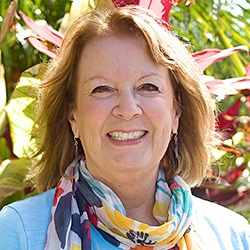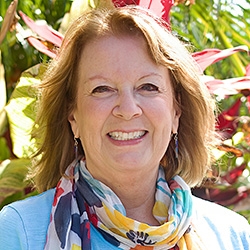
Search Results: release
-
Trainer Tip: It's impossible to value other people’s needs and remain compassionate if we simultaneously harbor judgments. If we're willing to shift this behavior we can translate our judgments into acknowledging how something affects us. Once I got into the habit of this, my judgments began to subside dramatically. It became easy to love people and feel compassion for them, and I experienced a freedom I had never known before.
-
-
-
Use this exercise to stay in dialogue and connect to needs while facing a “no”. Identify a situation where you have low confidence that you'll get your needs met, and it'll be hard hearing a “no” to your request. Explore your response to the “no” by working with feelings, needs, request and alternate strategies. Thus you can work towards meeting your needs while also releasing the idea that your needs “have to” be met.
-
When someone doesn't want to talk some options include releasing your attachment to the strategy you want, asking about and affirming with empathy their reasons for not talking, looking for what support could be helpful to shift to more openness, letting go, and grieving. Read on for more on this, including possible reasons for why they might not want to engage on it.
-
Untethering from dominant culture and internalized oppression takes releasing attachments and persistence inspite upheavals -- all with insufficient support. Even in community building we can bring oppression into our efforts to untether. The more we walk towards vision, the more tethers of patriarchy we undo, the more the cost. By exacting such high cost, patriarchal societies reproduce and sustain themselves. To untether we need fortitude.
-
Trainer Tip: Whether we listen to our own or the other person’s needs first, connecting to needs can help us release judgments of others, see their humanness, help us to begin to hear them and ultimately connect to them. Be aware today of times when you are judging someone. Then be aware of your own needs to improve your connection to them.
-
In A Worldwide Field of Compassion, Robert Gonzales presents an engaging course steeped in compassion-based self-discovery for ourselves and all life. Recorded in 2020, this 8-session course includes handouts, readings, exercises, and video recordings!
-
Self-compassion is essential for healing trauma and restoring your wholeness. It is also an antidote to reactivity and separation, allowing presence to emerge.
In developing presence, you can become what the world needs most in these times of intensity and chaos. This work can strengthen your skills to be more fully in relationship with all that life offers while allowing your heart to be moved by what is alive in you and with others
-
Living Compassion in an Ever-Changing World is the last course that Robert Gonzales offered before his passing in November of 2021. It is an intermediate course whose purpose is to deepen our conscious connection to our own vital life force, to develop skills that support inner healing, and to grow and strengthen daily practices that allow us to truly live life to the fullest.
-
Robert's passion was in the spirituality of the Nonviolent Communication (NVC) process. He saw NVC both as a process that helps people connect more authentically with themselves and others, and as a spiritual practice and way of living. The worldwide NVC community mourned when Robert died in 2021. He left behind a legacy of work that emerged from a lifetime of inquiry into the intersection between spirituality and human communication.
-
Unhook from a reactive dynamic, by staying with your needs and requests, and release attachment to outcome. Start by shifting your attention from the other person to get clear on what's true for you. Read on for strategies to transform reactivity, possible boundary setting behaviors, typical signs of escalation, and more.
-
Fully connecting to the deeper need under the anger can transform and release the anger, without requiring the other person to do anything differently. From there, you can reach an understanding of the other person's experience, feelings and needs underlying the actions that stimulated your anger to re-establish connection with your own and the other person's humanity.
-
When feeling unworthy, powerless, or afraid, we can hear others' comments as criticism, rejection, demands, limits, or attacks. Practice self-compassion, release attachments, and ask “How can I stretch the boundaries of who I believe myself to be, in service of love?”. Try replacing love with a word that inspires you (e.g. freedom, thriving, etc). Note answers that arise later. Or explore the question with a trusted person or in a journal. Read on for examples.
-

What are the most powerful things I can do to build an inspired relationship? I answered the question with romantic relationships in mind; however, I believe the answer below applies to all important relationships.
-
Through your dialogues at home, where the stakes are often very high, you can increase your ability to meet the challenges of life everywhere with empathy, goodwill and authenticity. Please listen to this inspiring recorded telecourse with Miki Kashtan and learn how!
-
How can we mobilize this insight in support of our own and others' healing? These recordings will shed light on how the social context into which we are born affects our experience, and what we can do about it at the individual level within the paradigm of nonviolence.
-
- Explore what makes the capacity lens radical and practical
- Understand the complexities of how capacity and willingness interface
- Mourn capacity limits within and around us without jumping to conclusions
- Orient to agreements as behavioral anchoring in support of your commitments
-
Using his own life experience, Eric explores why we need support from others, what support might look like, and what blocks us from asking for support for our relationships.
-
Reveal, own and share the inner chatter that plays over and over in your head, in between the words you speak aloud. Arnina Kashtan will help you discover, embrace and open up the places inside that you’ve hidden and judged.


















